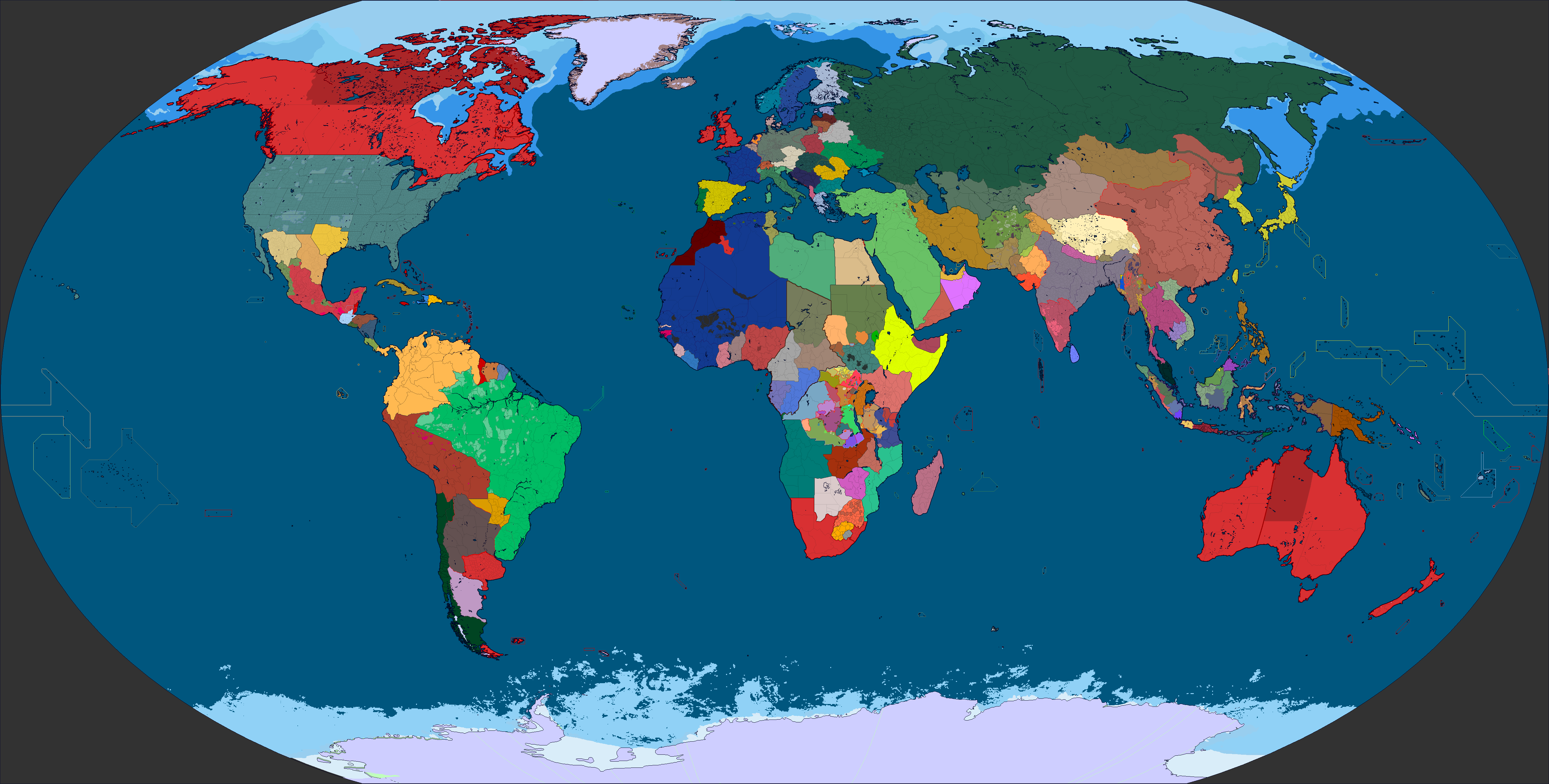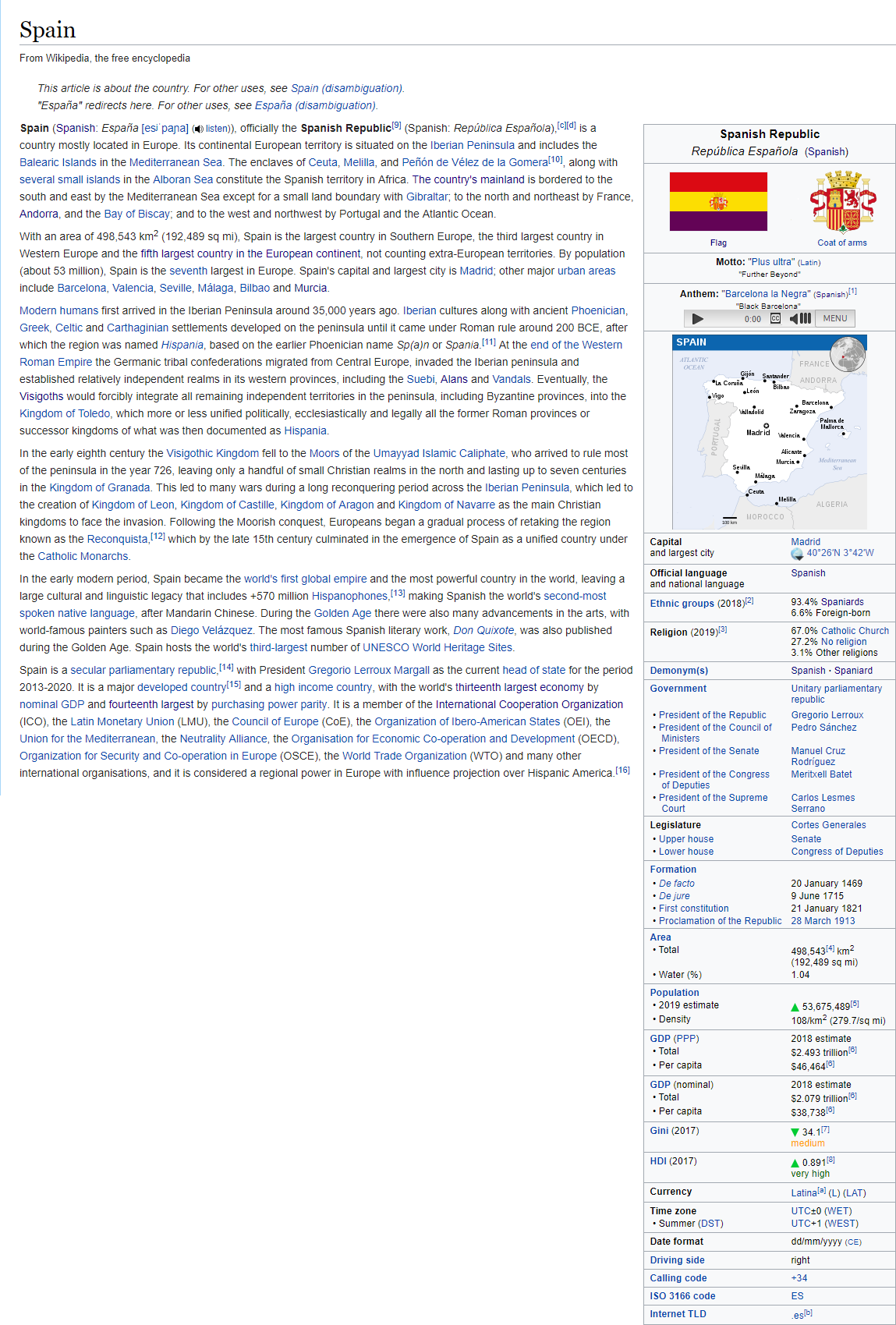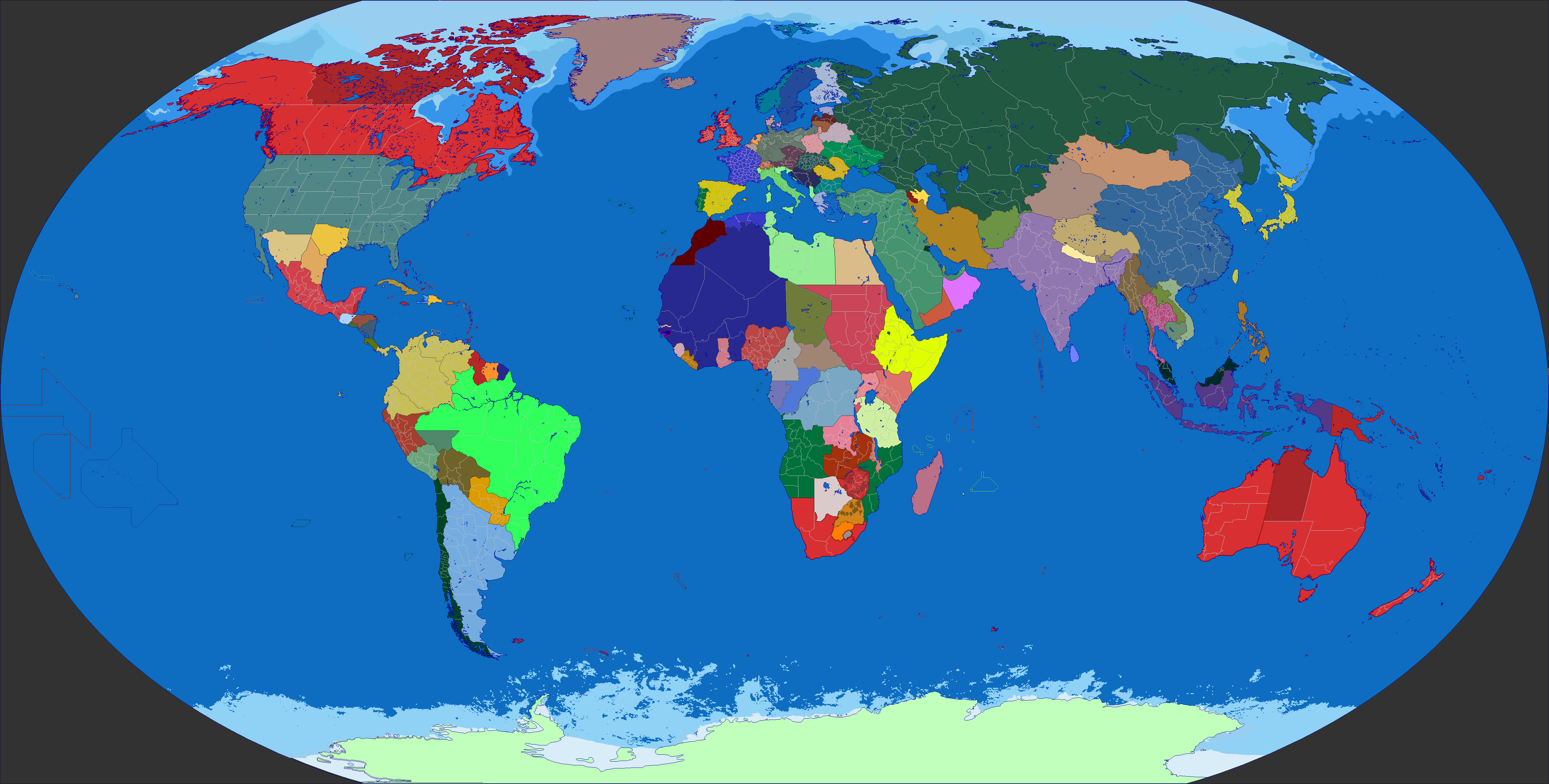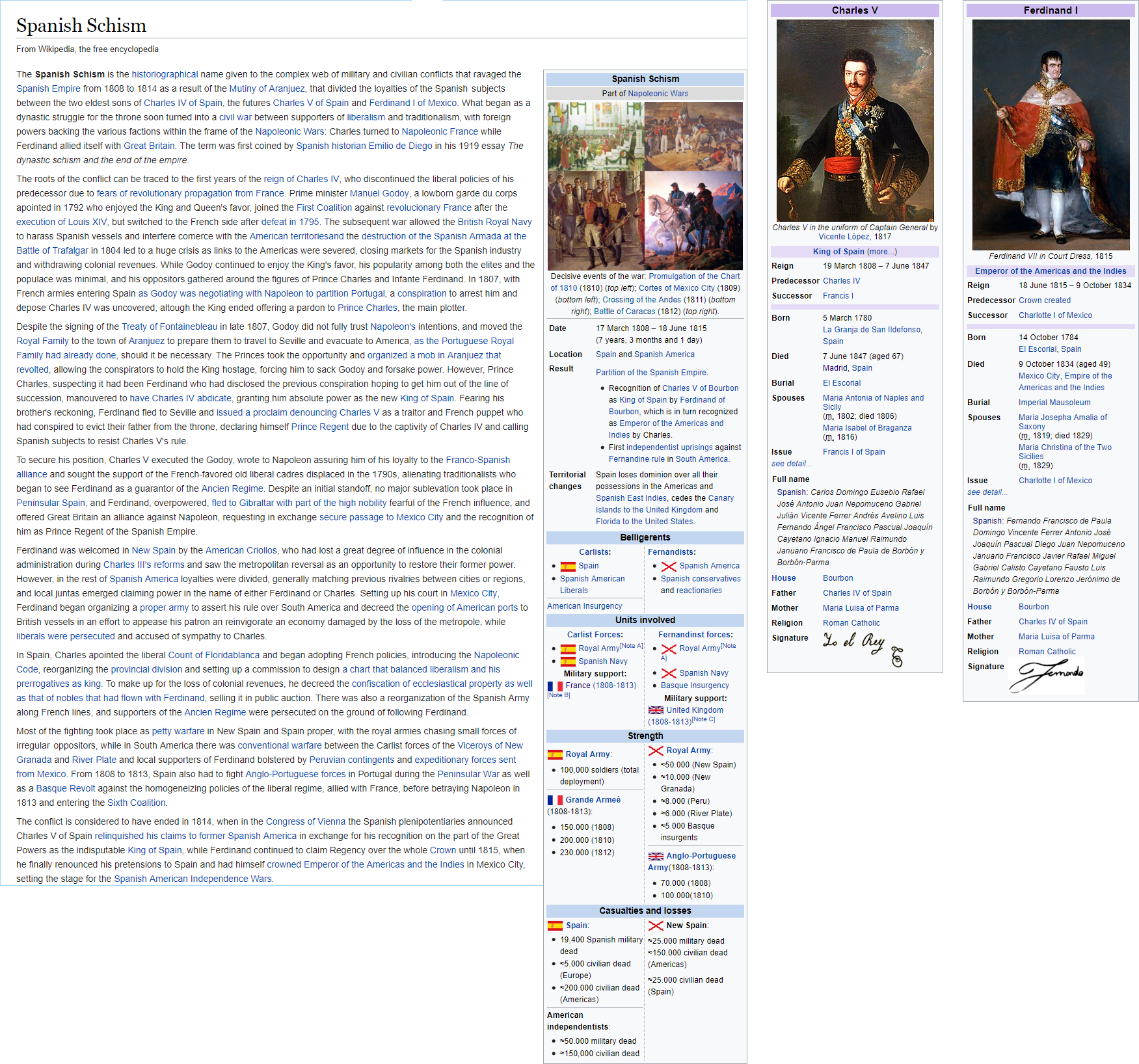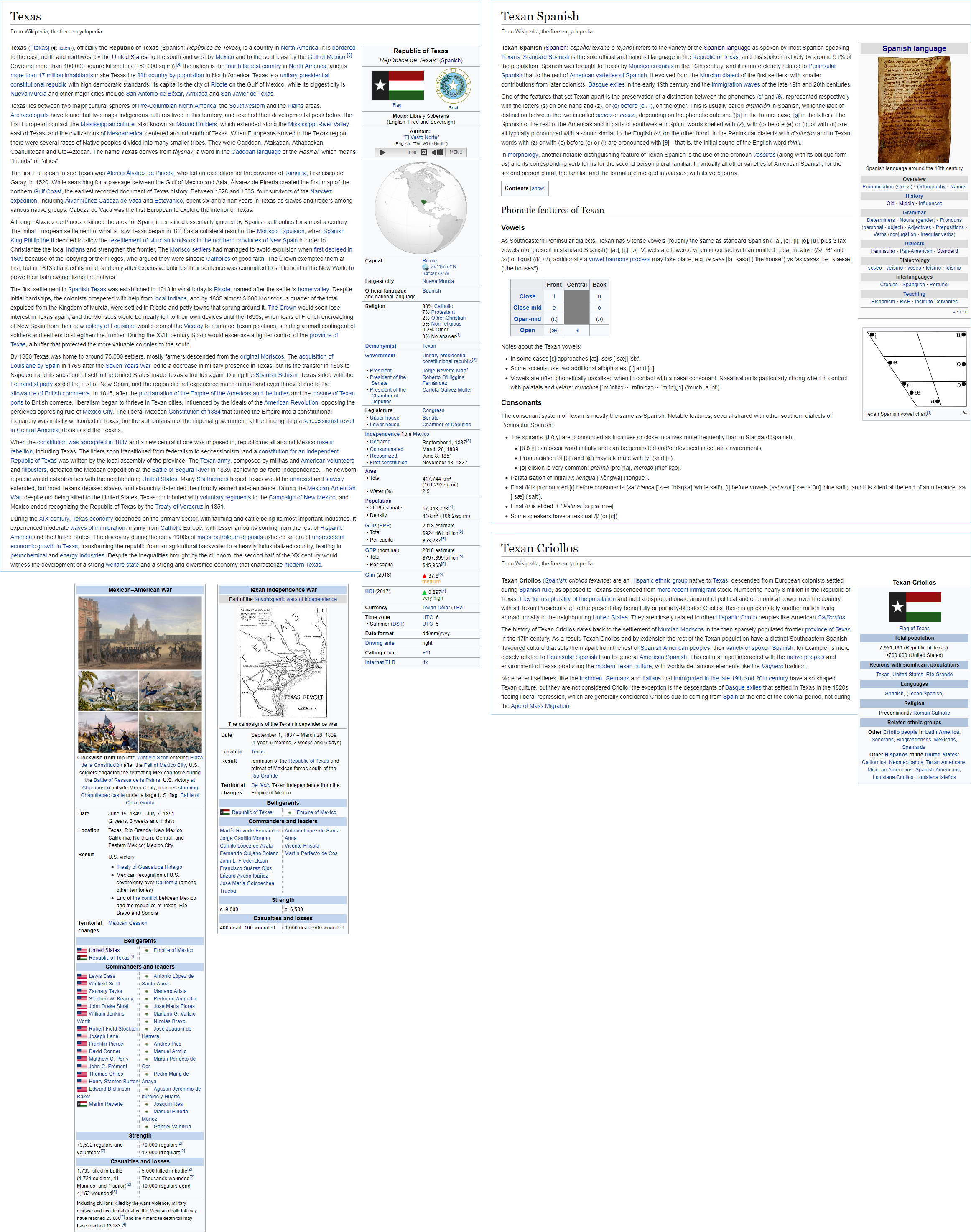Thank you everyone for taking interest on this!
Please elaborate
Also, how did Mexico end up so screwed?
The Republic of Texas is one of the first things I plan to address, for now let's say that a certain minority evicted around the 1610s manages to convince king Phillip the II of Spain to allow them to settle the sparsely populated New Spanish north to convert the natives to prove the sincerity of their Catholic faith.
Mexico suffered some of the fate of OTL Spain: it was the center of power of Ferdinand when he fled Spain, and so after the Napoleonic Wars tried to mantain dominance over the rest of Spanish America by the force of arms in the wake of British support to the newly declared republics, bankrupting itself in the process, falling to civil wars between liberals and conservatives and seccessionist revolts on the periphery. And that's when the United States enter the stage...
Italy looks big. Tell us more about Italy, please!
It's big, indeed, but I have the feeling that it only makes her more unstable (parliamentary speaking) than in OTL, having to take into account the sizable non-Italian minorities.
This looks really neat, and the world map has a really nice color scheme! My one suggestion would be to change up some of the borders in Africa from OTL a bit, which is just a slight bug peeve of mine, but even then your African borders look way more divergent from OTL than most graphic TLs, which is a win in my opinion.
Well, the basemap (and thus, the sea colors) is the QBAM updated by Bob Hope, so thanks to him. The country color scheme is a mix between the standard and my own modifications. On the subject of the African borders, I've been conflicted: European history up to the 1870s is mostly convergent with ours, so the Scramble of the 1880s couldn't been radically different, and at the same time I wanted it not to be directly OTL, so I thought I had reached a compromise.
I think the western states would be shaped differently
I understand you refer to the borders of the western United States, don't you? They have, like the African borders, been difficult: I didn't find a reason to change them outside the Southwest, but then again suggestions are welcomed!
Welcome and good luck! Kudos on starting a thread.
Hmm let's see, a Gran colombia, nice, would love to know more, i like that big italy and imperial germany, nice, uh oh, ireland and korea are british/japanese, this doesn't sound too good.
Looks at Africa, verify it is indeed in 2019 and not 1919
Alright, how did that happen?
Thank you! Well, the Republic of Colombia arose from the struggles between Carlists and Fernandines in New Granada during the 1810s, and cemented its independence in the war against New Spain during the early 1820s.
Needless to say I do not advocate colonialism nor the horrors it entails, but I wanted to create a different scenario than our world, not necessarily better (nor worse; some places are better, some are worse). British Ireland is something I have changed a couple of times, originally OTL Republic of Ireland was independent, but I gave it a second thought and believed that the lack of British implication in a major WWI-like conflict could result in a different path for Home Rule. Japanese Korea was also a second thought, my initial plan was an independent Republic of Korea (and a Republic of Japan) after a major Pacific War, but many timelines have a Western clash against the Japanese in the 40s, so I changed it and decided to allow the Empire to remain (although there is an Asian war, that forces Japan to relinquish Manchuria, it is not a war like our Pacific Theatre).
the continued existence of colonies does worry me to a degree (to say the least). how exactly did retaining those colonies, especially in africa, come about? it was an expensive, exploitative endeavor and native rebellions are costly.
I understand the existance of colonialism in the XXIst century is worrying from OTL perspective, but ITL there hasn't been a WWII-like conflict in Europe, nor have the Europeans suffered the horrors of an ideology like Nazism. The lack of both means that the European empires didn't bleed themselves out fighting and that XIXth/early XXth century mentalities are widespread even in the late XXth century. I believe it is coherent with the TL and allows me to explore the implications.
In 2019, the only states that have outright colonial territories in Africa are Italy, Portugal and France. In the case of Italy, the official position of the Republic of Italy is that the territories of the Quarta Sponda are an integral part of the country, with full representation on the national parliament and devolved powers in the form of the autonomous republics of Libya and Tunisia, of which the former has an Italian majority while in the latter they form a sizable minority. The Portuguese, on the other hand, sponsor Lusitropicalism as the state ideology and argue that Angola and Mozambique are overseas extensions of the Portuguese nation, denying any need for devolution. Finally, France regards Algeria as an integral part of the French metropole, and Frenchmen are a sizable minority there. The rest, French West Africa, is under direct rule from Paris with very little self-government at the local level, in a system inherited from the dictatorship with the objective (at least officially) of assimilating the natives into the republican tradition so that they can be full French citizens; the truth is that little has changed since colonial times, and unrest is growing by the day.
Then we have the Boer states of Orange Free State and South African Republic (Transvaal), that although not strictly "colonial", are built around Afrikaner ethnonationalism despite Afrikaners being a minority there and treat the African (and to a lesser extent, non-Afrikaner Europeans) as second-class citizens with little rights. Similar, but fundamentally different, we have the British self-governing dominions of Cape of Good Hope, Natalia and Rhodesia, with varying treatments of the native African majority populations: in Cape, there's no official distinction between Afro-Capeans and Euro-Capeans, and while racism is widespread, the government does not encourage it; in Natalia, Afro-Natalians have full rights but there are quotas in the Parliament and administration to ensure Euro-Natalians doesn't loose their privileged position; in Rhodesia there's a segregationist system by which Afro-Rhodesians have "full rights" in designated "native lands" but have certain restrictions in the rest of the territory, and numerous laws and practises, although not openly racist, hinder the advance of Afro-Rhodesians to entrench the position of Euro-Rhodesians.
How did Ethiopia end up gaining Somalia and other neighboring countries?
How did Britain had taken the Canary Islands?
Ethiopia gained the former territories of Italian East Africa after the Second Italo-Ethiopian War in the 1950s, while it bought British Somaliland earlier. I must admit it is one of the things that I have done "just because", to have a big successful African country that repels European colonialism and becomes and example for colonized peoples of Africa.
The Canary Islands were ceded by Ferdinand of Bourbon to his British allies after he fled Spain for Spanish America in 1808, to avoid them falling to Charles V of Spain, allied to Napoleon. Spain relinquished its claim to them in 1815 at the Congress of Vienna, and while Ferdinand claimed them as part of his policy of uniting the former Spanish Empire under his rule from Mexico City, after the declaration of the Mexican Empire the Canaries were mostly forgotten and remained as a Crown Colony of the British Empire until granted responsible government in the 1910s.


